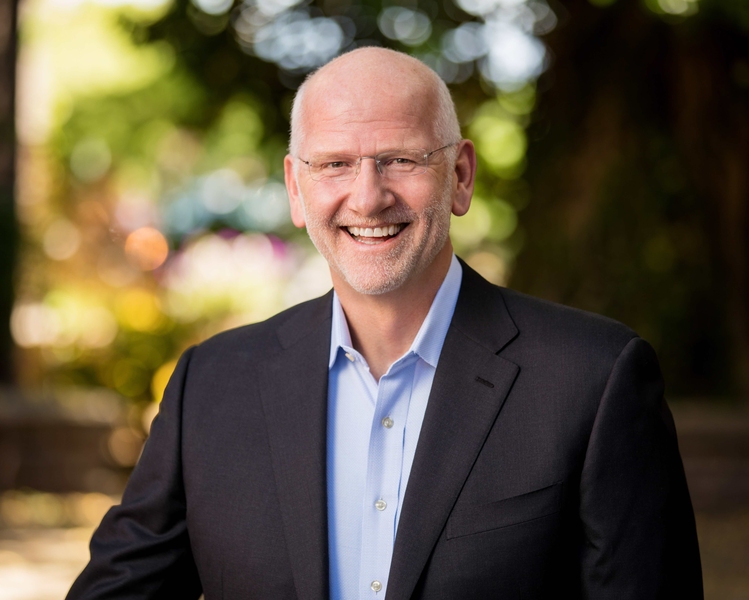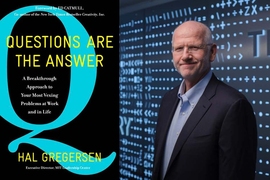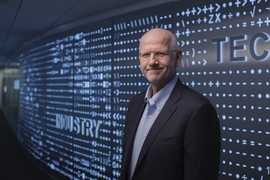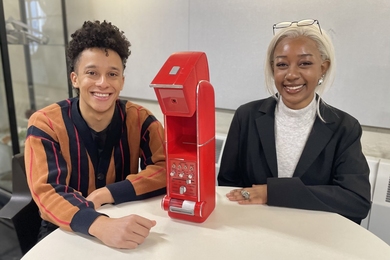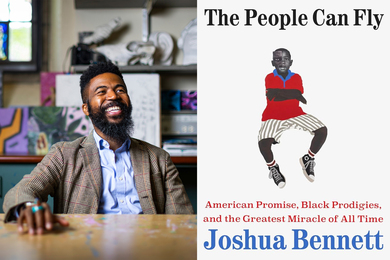Do you have challenges in your professional or personal life to which you seemingly have no answers? Most of us do. Hal Gregersen, executive director of the MIT Leadership Center, author, and a motivational speaker, says we’re usually stuck because we’re asking the wrong question.
So, how do we figure out the right one?
That question sent Gregersen on a research quest including more than 200 interviews with some of the world’s most creative leaders, such as Elon Musk and Jeff Bezos. His latest book, "Questions Are the Answer" (Harper Collins, 2018), delivers the insights he gained about the conditions that give rise to catalytic questions — questions that dissolve barriers to creative thinking and channel the pursuit of solutions into new, accelerated pathways. This work has also led to Gregersen’s newest MIT Sloan Executive Education program launching in July, Questions Are the Answer: A Breakthrough Approach to Creative Problem Solving, Innovation, and Change.
Banish your blind spots
The power and privilege of the C-suite can leave leaders insulated from internal trouble, external signals, and important insights. This “CEO bubble” creates a dangerous disconnect for leaders who must recognize when a major change in direction is required, yet often lack the information required to perceive a looming threat or opportunity.
This “isolation” challenge at the apex of organizations surfaced again and again in Gregersen’s research. This predicament prevents leaders from getting a true sense of corporate performance, innovation, culture, morale, outcomes, and other critically important issues.
While persistent CEOs may eventually get the information they request, it’s the questions they didn’t know to ask that often come back to haunt them. These unanticipated risks — or “unknown unknowns” — are business threats that can come out of nowhere. “Just ask the executives of the GPS device makers that were rendered irrelevant by free navigation apps on phones,” says Gregersen, “or the taxi businesses upended by ordinary car owners selling rides through Uber and Lyft.”
Fortunately, the dangerous territory of unknown unknowns can be lit up by an insightful question. Gregersen has numerous examples of leaders who find the answer to a serious challenge by reframing the questions they asked. For example, the entrepreneur who created GoldieBlox, Debbie Sterling, wondered, “Why are all the great building toys made for boys?” Or, consider Nobel laureate Richard Thaler, who questioned, “Would it change economic theory if we stopped pretending people were rational?” Marc Benioff, founder of Salesforce, asked, “Why are we still loading and upgrading software when we have the internet?” And Rod Drury, founder of Xero, routinely asks, “What is the exact opposite of what an incumbent would expect us to do,” in order to challenge the industry.
Asking such questions is essential in today’s world where globalization, digitization, and disruption push leaders to the edge of uncertainty and urge them to figure out what they don’t know they don’t know — before it’s too late.
Get uncomfortable
While leaders can’t formulate brilliant questions on command, they can increase the chances that flashes of insight will occur by understanding the conditions that give rise to them and pursuing those conditions.
How often do you spend time in strikingly different places? How often do you talk with people who are extraordinarily different from you? Gregersen’s work explores how the most innovative leaders recognize their isolated positions and create intentional, formulaic strategies to fix this. They seek out new people, places, and experiences — often uncomfortable situations — that force them to uncover what they didn’t know they didn’t know and receive raw, unadulterated feedback. During the internet’s early years, Benioff traveled the world seeking new insights from dozens of strikingly different people. He and his senior leaders now regularly go on global “listening tours,” looking for weak strategic signals.
Leaving your comfort zone puts you into a heightened state of alertness. You become extra receptive as you struggle to get your bearings or get on top of a disconcerting situation. When you’re in a situation like this, fresh questions race through your mind. And one of those questions just might be a game changer.
Held in July and again in October, Questions Are the Answer aims to provide executives with frameworks and behavioral habits for cultivating an inquiry-driven approach to leadership and life. Gregersen will be joined by INSEAD Professor Roger Lehman and Executive Coach Kristen Kolakowski, who together will engage participants in hands-on discovery and deliver unique insights into the behaviors of extraordinary leaders that result in game-changing questions and organization-wide change. INSEAD is a graduate business school with campuses in Europe, Asia, and the Middle East.
